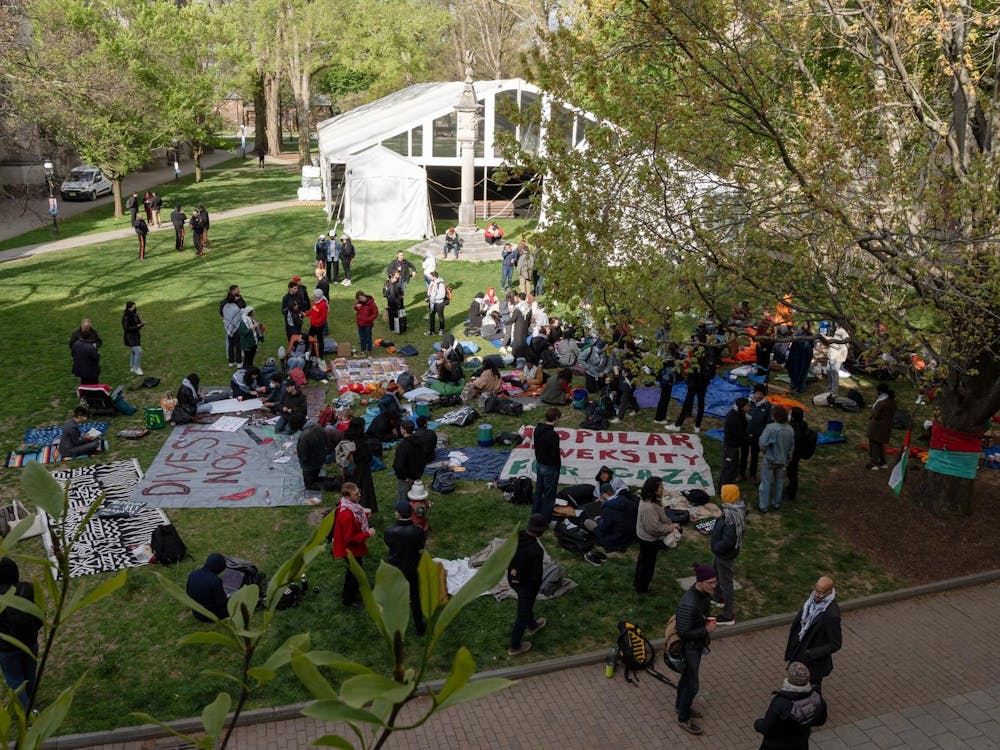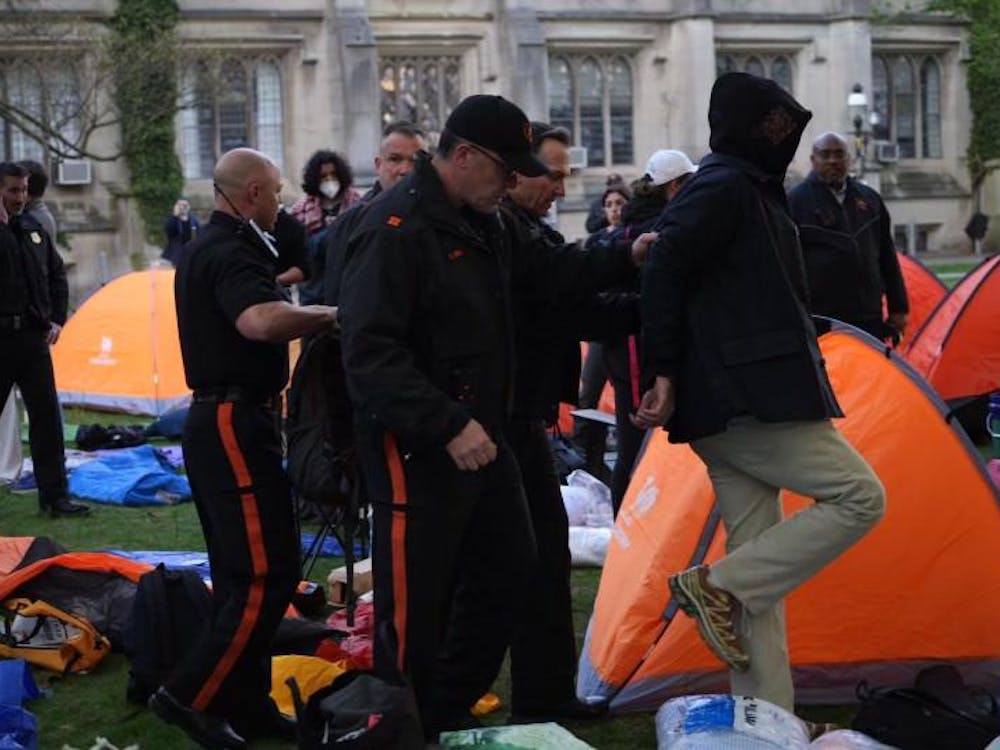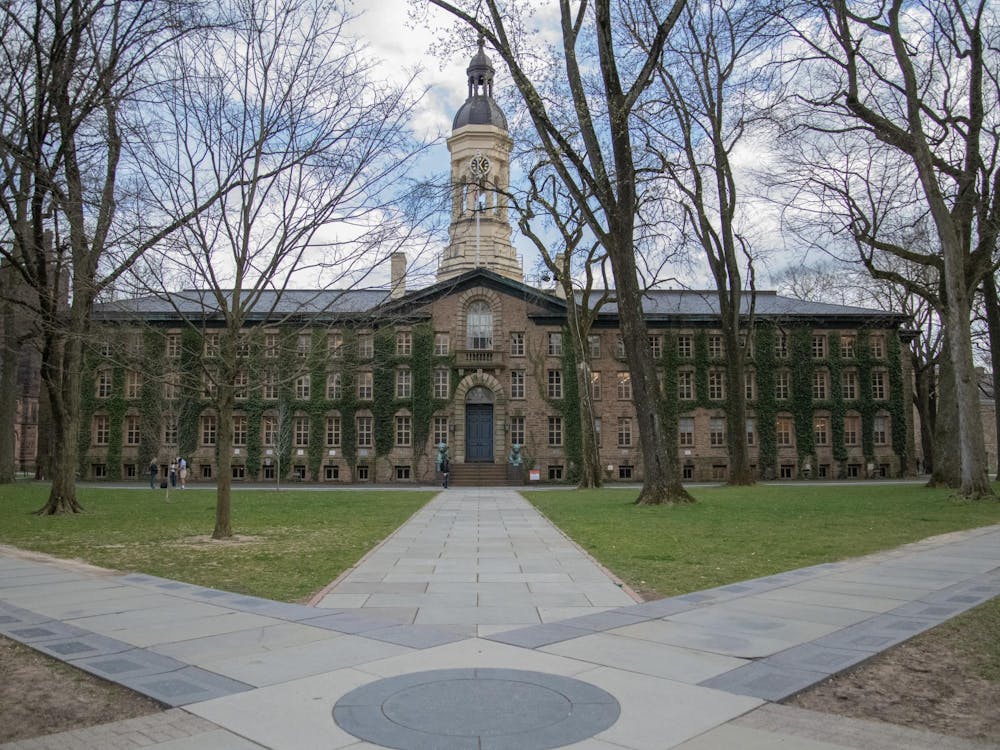Following the efforts of other universities to address smoking-related concerns, Princeton students, in collaboration with the Pace Center, have formed the Princeton Tobacco Control Policy Group to raise awareness about secondhand smoking.
“The overall goal is to have a healthier campus for students and faculty … and to raise awareness about the dangers of tobacco,” president and founder of PTCPG Judy Hou ’16 said.
Hou, who was involved in tobacco prevention activities in high school, said she formed the group because she felt that Ivy League schools have not done enough to address the health effects of secondhand smoking.
“This is a topic that hasn’t been approached as much at Ivy League schools … People don’t think it’s really something that affects them directly, but I think a lot of state schools have seen that it’s a bigger issue,” Hou added. “I talked to a lot of my peers, and I did hear people with complaints about having to breathe in smoke, especially walking to class or outside Frist.”
Hou said she contacted similar groups at Harvard University and Yale University. Harvard’s Tobacco Control Policy Group, which has been active since 2010, found that 10 percent of students who responded to a survey identified as current smokers. Although no similar data is available for Princeton, Hou said that she thinks the percentage is roughly the same.
Though the group plans to study the frequency of smoking on campus and its potential side effects, it has not yet indicated that it will produce policy recommendations on the basis of its findings, PTCPG member Farrah Bui ’14 said.
“There’s a reason why secondhand smoke and smoking in general is unhealthy, but I think the reason why we haven’t taken a stance in terms of a specific policy is that we want to be sensitive,” Bui said. “We do have a large body of international students where smoking is integrated into their culture.”
Bui said that other colleges have adopted regulations to address smoking-related health concerns.
“I think there’s been a really large net of colleges who have been interested in getting their campuses to be smoke-free, and, if not, at least some kind of regulation like, ‘You can only be so many feet away from a building [when smoking],’” she said. “It’s very interesting that one of the leading institutions isn’t on this, but it’s something that is catching on.”
She added that any policy “should be framed around what students want.”
While several members of PTCPG are also members of the Student Health Advisory Board, the control group was founded separately by Hou.
SHAB launched an initiative to discourage smoking around frequented campus buildings this past fall, SHAB communications chair Taylor Dunstan ’15 said.

“SHAB’s main goal with this project was to alleviate the concerns of secondhand smoking,” SHAB treasurer Stephen Cognetta ’15 said. “Maybe it doesn’t affect everyone … [but] secondhand smoking is definitely a legitimate concern.”
Dunstan said that the initiative was not as successful as SHAB had hoped, in part because of what she called a “culture of smoking” that exists among grad students. She explained that SHAB is not continuing the smoking initiative this semester and is allowing Hou’s group to assume primary responsibility for addressing the issue of smoking on campus.
SHAB recently sent emails to the residential colleges asking students about their opinions on the issue of secondhand smoke and received 40-50 responses from students who “thought it was an issue that should have been addressed,” Dunstan said.
Many of these responses were complaints about secondhand smoke on campus, though others were from smokers who offered advice on the issue, she added.
PTCPG has held one meeting so far this semester and will determine more concrete objectives at later meetings, Hou said.








